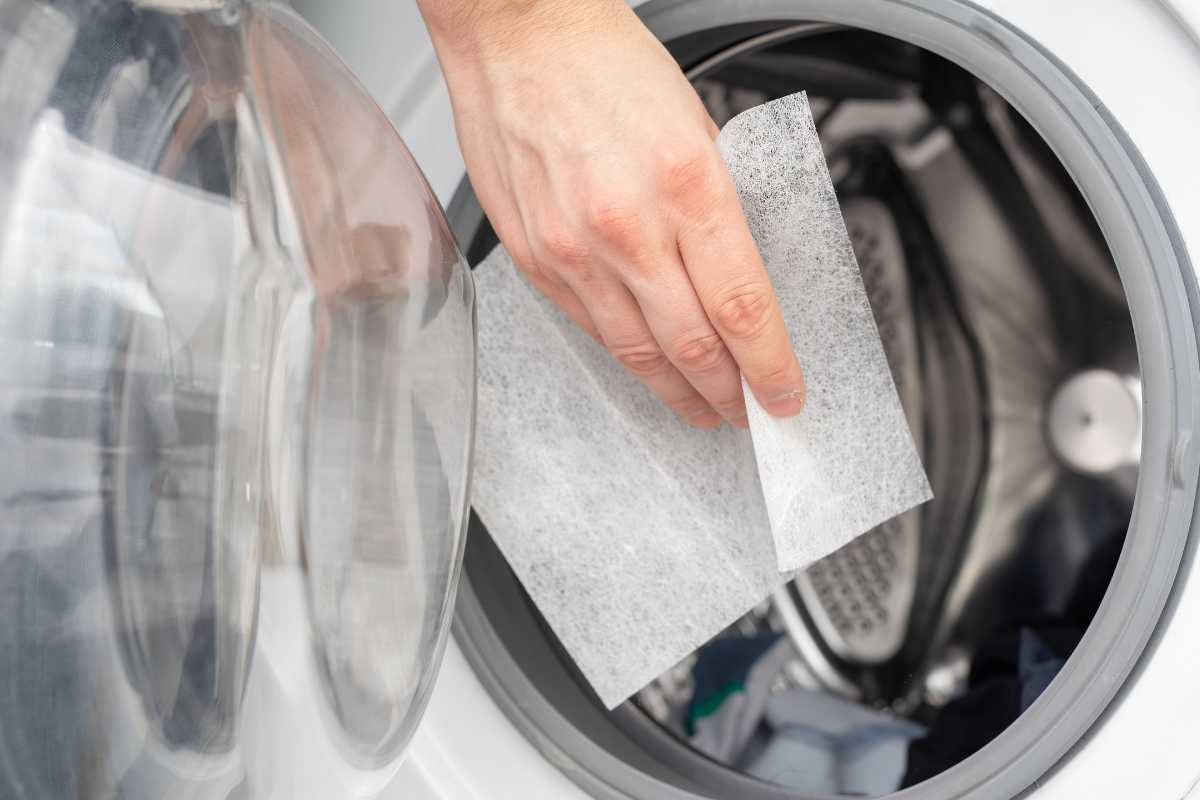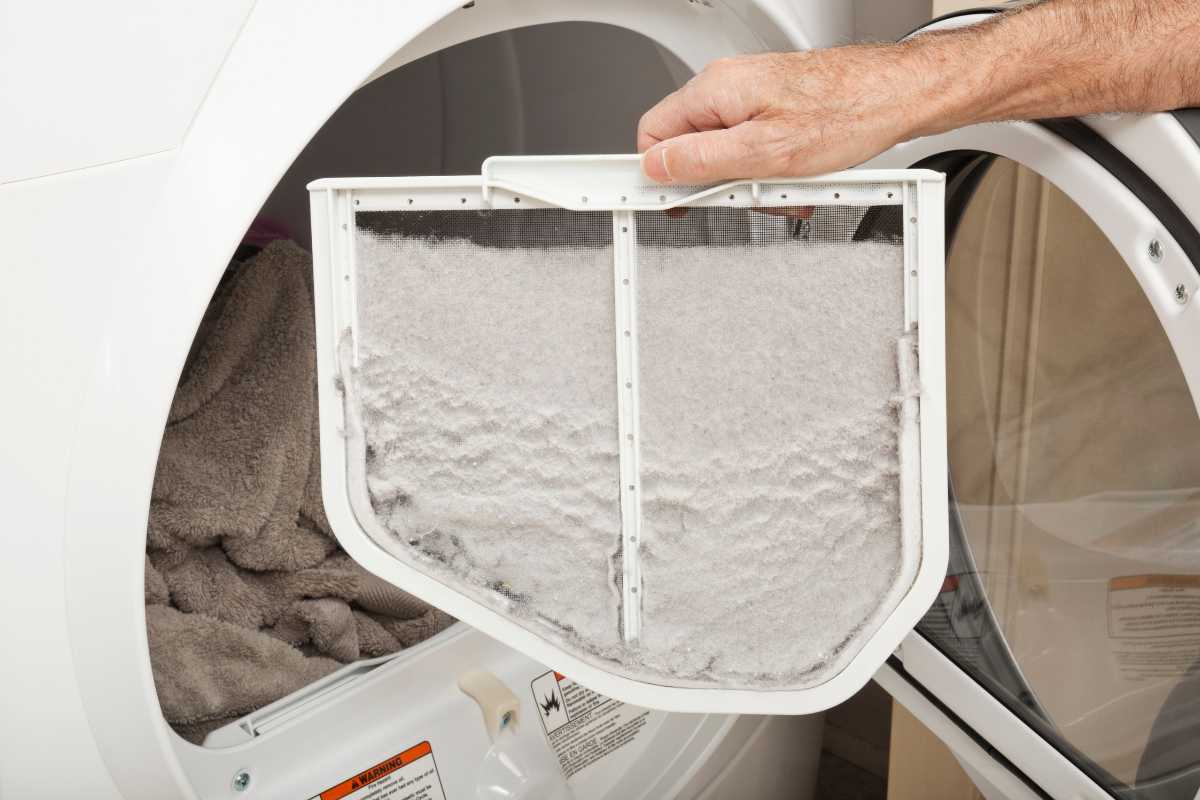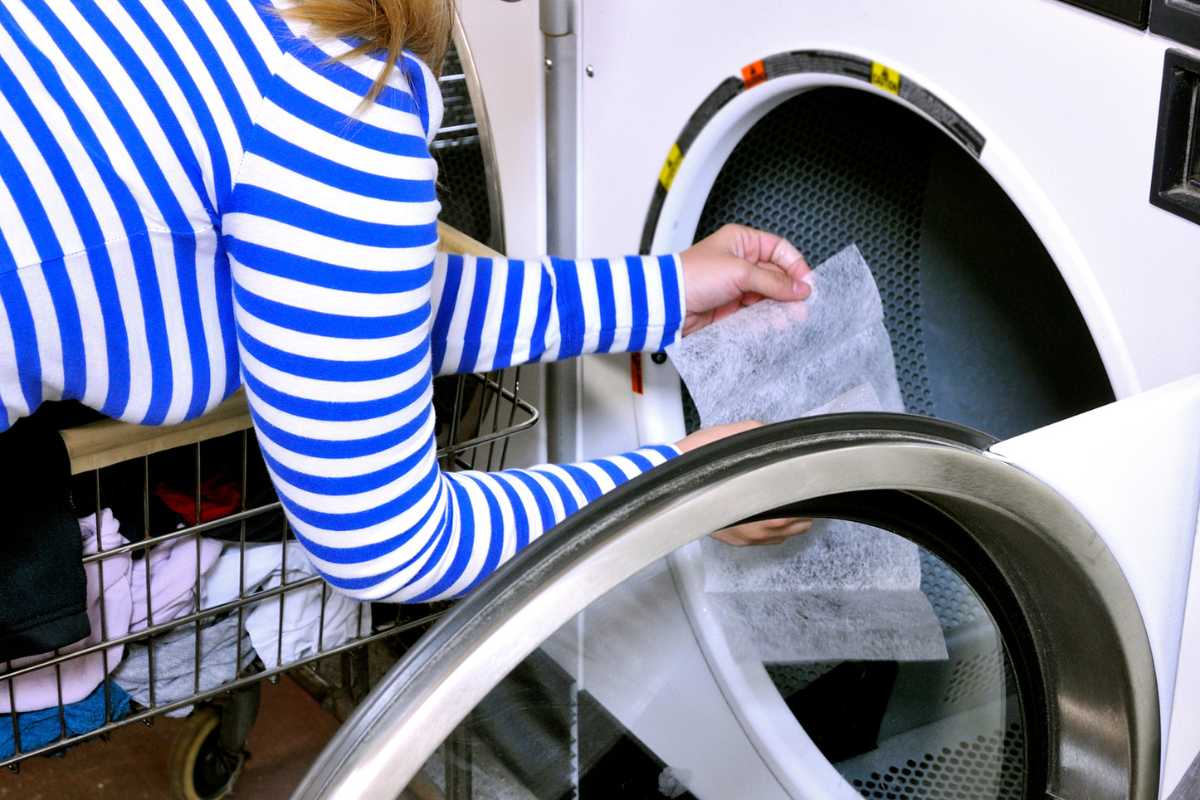Dryer sheets are used to absorb moisture, act as a fabric softener, and prevent static electricity when drying clothes. Are there any chemicals or synthetic materials used to make these sheets?
Have you ever wondered – can you compost dryer sheets?
Let’s find out more about these white squares we put in the dryer and if they can be added to your compost piles.
Can You Compost Dryer Sheets?

If you ask most gardeners about composting dryer sheets, they will tell you that they should not be added to your compost.
Traditional dryer sheets are made from synthetic materials and therefore, are not compostable. These synthetic sheets are the latest in a long line of household products that are consumer-induced eco-crises, along with wet wipes and cleaning wipes.
The market has responded by creating new compostable dryer sheets (like these) made of natural fiber.
If you want to compost dryer sheets, make sure they are biodegradable before you add them to your compost heap.
These eco-friendly dryer sheets are often more expensive than varieties made of synthetic material, and reviews are mixed on how their fabric softening performance holds up.
If you are looking into ecological replacements for dryer sheets, reusable alternatives may be more economical. Here’s an example of wool dryer balls that are compostable and reusable online.
Many of these are also compostable, so you can depose of them at home once you’ve finished with them. They claim to last for over 1000 uses, so they are definitely the most eco-friendly solution.
To avoid synthetic materials, there are also plant-based dryer sheets now from Seventh Generation. These are made of plant-based fibers and the unscented dryer sheets still give the same fabric softening results.
Can You Compost Dryer Lint?

Composting dryer lint is not as clear-cut as composting dryer sheets, and what type of dryer sheet you use can impact whether you can compost your lint or not!
As many clothes are made from synthetic materials like polyester, nylon, acrylic, and elastane, they will produce lint that is not compostable. Check the labels of your clothes before adding any lint to your compost.
An effective way to check for synthetic fibers is to burn a bit of the lint; if it burns up, it’s okay, but if it looks like it’s melting, it contains non-compostable materials.
If you decide to check the lint in this way, please make sure you do it safely. Use gloves, wear goggles if you have them, and burn the lint in a well-ventilated area.
If you are drying clothes made from linen or cotton, it will be fine to compost the lint. Although if you are drying them in conjunction with synthetic dryer sheets, you may be introducing some tiny synthetic fibers into your compost, which is not recommended.
Only compost your lint if you are drying clothes made from natural fibers and using compostable dryer sheets or wool dryer balls.
Suppose, like most of us, you have a mix of clothes made from synthetic fibers and natural materials. In that case, you can dry clothes of the same materials together, remove the lint after each use and dispose of it accordingly.
Other Uses for Old Dryer Sheets and Dryer Lint

Even if you’re not composting your dryer sheets, there is no need to chuck them straight into the trash after one use. There are plenty of other things you can do with old dryer sheets.
Here is a list of 5 things you can do with used dryer sheets.
- Re-use them for your laundry – Running a used dryer sheet over clothes that have static cling will remove the static. Dryer sheets will usually retain some smell and effectiveness after their first use, so you can keep using them in the dryer until they are completely worn out!
- Deodorizer – Stuffing a used dryer sheet into your stinky shoes overnight will leave them smelling fresh by the morning. They can also be used in drawers, cars, boxed-up belongings, garbage pails, closets, or anywhere else that you want to keep smelling fresh.
- Cleaning – These sheets make great dusters and have the added benefit of removing static when dusting your TV. You can also use them to wipe out your dryer. Damp dryer sheets are also surprisingly efficient when cleaning up soap scum or crusty cookware. If you need to de-gunk your iron, put it on low and run it over a dryer sheet. You may want to use a few dryer sheets together for the potential heat.
- Remove deodorant from clothes – Use a dryer sheet to clean off any deodorant marks while getting dressed quickly.
- Clean up sawdust – Sawdust is attracted to dryer sheets like iron filings to a magnet, so they are convenient for cleaning up a wood workshop.
There are many more ways to use old dry sheets, so it’s a good idea to keep a dryer sheet stash to use around the house.
How to Compost Dryer Sheets
There is no step-by-step guide to this, since you would usually not be composting them.
The main thing you need to do is check what the dryer sheets are made of and if the clothes being dry are made of synthetic materials. Those are not compostable.
If you use biodegradable dryer sheets, then you can toss them directly into the composter. You can cut them up into pieces if you add a lot of them, but that’s unnecessary if you only add them sporadically because they’re already thin.
The compostable variety is made from plant products, but there is very little nutrient value in them, so be mindful of adding too many sheets at one time.
Dryer sheets are classed as brown materials, and you can add them to your kitchen compost caddy along with your kitchen scraps. All in all, dryer sheets are a pretty easy item to add to your compost.
Composting Dryer Sheets Final Thoughts
Conventional dryer sheets aren’t able to be composted because they’re usually made of synthetic materials. Dryer lint are not compostable either if the clothes being dried are made of synthetic material.
Many people will also find other uses for their dryer sheets, like as a deodorizer or dust sweeper.
For more composting guides, check these out:
Composting Dryer Sheets FAQs
Are dryer sheets waste or compost?
Dryer sheets can be either waste or compost depending on which types of dryer sheets you have. Conventional dryer sheets are made of synthetic materials that are waste. But now there are biodegradable dryer sheets made of natural materials that are compost.
Should you compost dryer lint?
You can compost dryer lint if the material that was dried was made of natural fibers. If you dried any clothes or other fabrics that are synthetic, you should not compost that dryer lint.
How do you dispose of dryer sheets?
You can dispose of dryer sheets in the trash, but before you do, consider the potential uses of the dryer sheets first. Removing static from clothes, for dust cleaning, and to deodorize shoes and clothes. There are many more uses for used dryer lint, so you may want to save some for future use.
Can you recycle dryer sheets?
Traditional dryer sheets are disposable and meant to be thrown in the trash, because you cannot recycle dryer sheets. Regular dryer sheets are made of non-recyclable materials to have a fresh scent, effectively soften fabrics and eliminate static.
Can you recycle dryer lint?
You usually cannot recycle dryer lint because the clothes and other fabrics that were in the dryer were made of synthetic fibers. Those same synthetic fibers make up the lint, which includes non-recyclable materials like hair and dust. Recycling centers will not accept the lint for those reasons.



